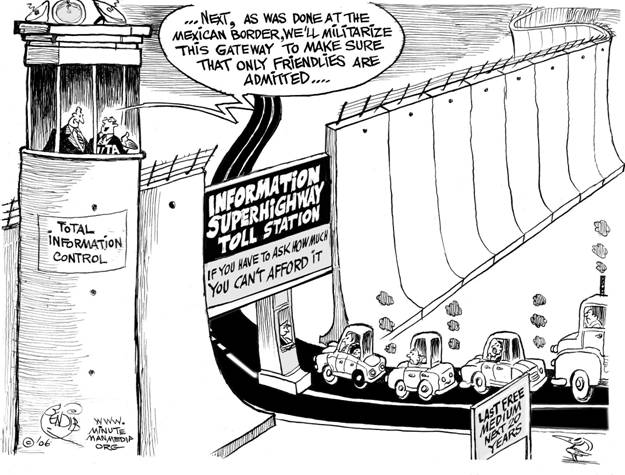Redefining Freedom
From Marketing Technology Blog:
The Senate has passed a media shield law that defined journalism and where the only protected class of journalist are those involved in legitimate news-gathering activities.
From a 10,000 foot view, the bill seems like a great idea. The LA Times even calls it a “Bill to protect journalists”. The problem is the underlying language that allows the government to define what a journalist is, who a journalist is, or what legitimate news-gathering is.
This is troubling. Historically, there was a very low - virtually nonexistent - threshold of what constituted journalism.
Back when the Constitution was written, any average person on the street who could borrow or afford a printing press was a journalist. If you go back and review some of the single page papers that were printed back then, they were atrocious. Politicians were smeared with absolute lies to misrepresent them to the public in order to bury their political aspirations. Being a journalist didn’t require a degree… you didn’t even have to spell or use proper grammar! And news organizations didn’t appear until decades later as newspapers began to buy up the smaller circulations. This led to the news media moguls we have today.
The first journalists were very much just citizens getting the word out. There was zero legitimacy to who they targeted, how they acquired the information, or where they published it. And yet… our leaders of our country… who were often the target of these attacks… chose to protect the rights of free speech and journalism. They chose, intentionally, not to define what the press was, how news was gathered, or by whom.
Neither Republicans nor Democrats really care about freedom - they just want power. There's not much distinction between the parties now.

